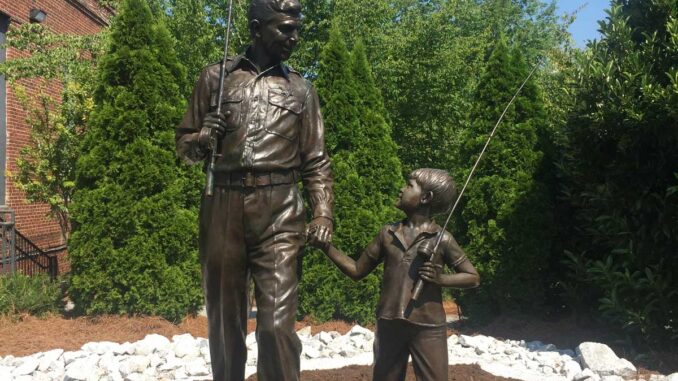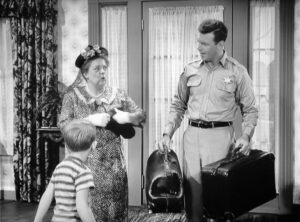
Imagine yourself in the late 1930s at Morgantown’s grand Metropolitan Theater, enjoying a Saturday matinee. While the summer heat swelters outside, the theater cools you down with its state-of-the-art air conditioning—one of the first in the nation. Your ticket allows you to watch movies all day long. As you wait for the next feature, a gangly teenager strolls onto the stage, sets up a Charlie McCarthy dummy on his lap, and begins his ventriloquist act. His jokes may not be groundbreaking, but his earnest delivery captivates the audience.
“When Don Knotts was in high school, he would perform his ventriloquist act at the Met during intermissions,” recalls Metropolitan Theater enthusiast Rick McEwuen. “He wasn’t paid, but nobody seemed to mind.”
Even as a teenager, Knotts was a local celebrity, eager to seize every opportunity to entertain. His journey is closely tied to that of the Metropolitan Theater, both celebrating their centennials this summer—Knotts was born just three days after the theater opened on July 24, 1924.

The Met was the vision of brothers George and John Comuntzis, who also operated a restaurant across the street. Dubbed “West Virginia’s Most Beautiful Playhouse,” its opening night featured an extravagant parade with live animals and a variety of performances, including acrobats, comedians, and a vaudeville production of The Carnival of Venice.
Jesse Donald Knotts, the youngest of four siblings, grew up in Westover before his family moved to a larger home on University Avenue in Sunnyside during the Great Depression. Knotts faced challenges early on, including his father’s mental health struggles. His brother Earl, known as “Shadow,” became his first comedic inspiration, lightening family gatherings with his antics. Knotts recalled, “Shadow would butter his bread as if it were a violin, tucking it under his chin and using a knife as a bow,” often leading to uproarious laughter around the dinner table.
Radio also played a significant role in Knotts’s comedic development. He listened to the Amos ’n’ Andy show nightly and honed his timing by mimicking Jack Benny’s impeccable delivery.
Life at home improved after his father passed away in 1937. Knotts’s mother, Elsie, encouraged his budding talents and helped him gain small performance gigs in the community. Buoyed by newfound confidence, he headed to New York after graduating from Morgantown High School in 1942, only to return home before summer’s end. He briefly enrolled at West Virginia University before being drafted into the Army after his freshman year.
As we celebrate the legacies of both Don Knotts and the Metropolitan Theater, we reflect on their intertwined histories and the enduring impact they’ve had on the world of entertainment.
